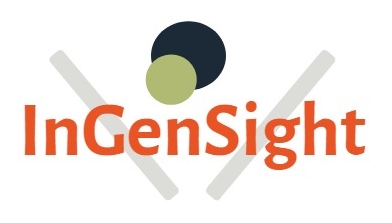Machine Learning, Artificial Intelligence, GenAI, and now Agentic AI, you can’t get away from the AI hype. But, without a doubt, AI is disrupting the world of work, creating opportunities and risks everywhere. While there are infinite use cases, a significant amount of enthusiasm has been focused on how genAI can automate writing and content generation. On the flip side, less attention is focused on how we, as humans, can create content for an AI audience. But, those who can leverage GenAI to amplify their message and add validity will be better positioned to compete.
In the age of the internet and browsers, optimizing content to rank in Google searches was key to gaining visibility. This led to a Search Engine Optimization (SEO) services market that has grown to over $90 billion. With AI, new ways to consume content are emerging, and marketers need to rethink their approach to reaching their customers.
GenAI research tools such as Perplexity and ChatGPT fundamentally differ from search engines built for the Internet. Instead of pointing the user to content on the web, these new tools parse information they scrape from the web and provide detailed analysis to the user. Tools like Deep Research can provide reports that compare multiple vendors and present an organized analysis. Users no longer need to visit vendors’ websites to get a firm understanding of which solution is best for them. Top-of-the-funnel marketing is disappearing as AI takes prospects directly into the middle or bottom of the funnel.
Generative Engine Optimization (GEO) is displacing SOE. Marketers must ensure that GenAI search engines’ output features their messages and present products and offers in the best light.
Authority ranks in AI search.
AI overweights authority. To deliver the best, most accurate responses to queries, AI search engines strive to return accurate content and answers that meet the user’s intent. Without the instincts and experience of humans, AI looks to validated data sources to increase confidence levels.
According to research conducted by students at a handful of universities, including Princeton, in November 2023, more convincing or authoritative content was more likely to be cited by AI search. Data showed that including citations, quotations from relevant sources and statistics boosted content visibility by over 40%.
They found that authoritative communication, quotations and statistics consistently outperformed other tactics, such as keyword stuffing and Unique words.
A more recent research effort from FirstPageSage found that being included on authoritative lists was the best predictor of a company’s content appearing in an AI search.
In the SEO world, E, E, A ,T or Experience, Expertise, Authority and Trustworthiness are important metrics to help content rank high on search engines. These factors are still important in GEO, but AI takes its analysis a step further. It is looking for patterns that align with quality and trustworthy content. It is not about backlinks but whether others support your content.
How to build authority
Gather and publish proprietary data. The more data you can include in your content, the more credible it will be. If this data is unique to the market, third parties will reference it and align their content to your research, which only fuels your importance.
Build community. To be an authority, you need to understand your community’s questions and have the answer before they ask them. AI search engines are looking for content to answer users’ questions, and vendors with the answers will be considered the authority. A strong community will also support thought leadership efforts with quotes.
Influence the Influencers. Not only do you need to convince AI that you are an authority in an area, but you also need to convince third parties that you have the greatest knowledge of your segment. Third parties, such as analyst firms that understand your expertise, will look to you for insights, further building your authority. Consistent messaging is key, as is aligning your content with their analysis. In the new age of AI, getting recognized by analysts with awards is also much more important.
Define your market. Understanding your customers and defining your market and area of expertise are becoming increasingly important. Clearly defining your area of expertise is key to building authority. No one can be an expert in everything, and those who think they know everything will not be credible.
Authority as a competitive differentiator
AI is reducing competitive barriers and disrupting technology marketing. Artificial intelligence through vibe coding is helping developers bring new products and features to market at a fraction of the time and effort typically required. Innovation can quickly be copied, limiting the advantage product capabilities and features can deliver. Buyers are increasingly aware of vendor lock-in and turning to open source, reducing switching costs. AI can also shrink the work required to switch software vendors.
With AI driving research and search, another technology layer has been inserted between vendor and buyer, where vendors have limited direct control. In many cases, competitive solutions may not be considered until the end of the buying process – if at all. Vanity metrics such as page visits will have very little relevance.
A strong brand and authority in a market segment will carry much more weight in the technology marketplace in the future. Vendors overly focused on short-term lead generation will find it hard to grow. With lowered barriers and disappearing competitive differentiators, they will be stuck trying to attract new clients to replace the ones that have left.
The technology marketing of the future could be defined by battles between vendors trying to assert their authority. Expanding expertise and authority into adjacent market segments will enable growth, and defining and defending areas of expertise will be the cornerstones of marketing strategies.
